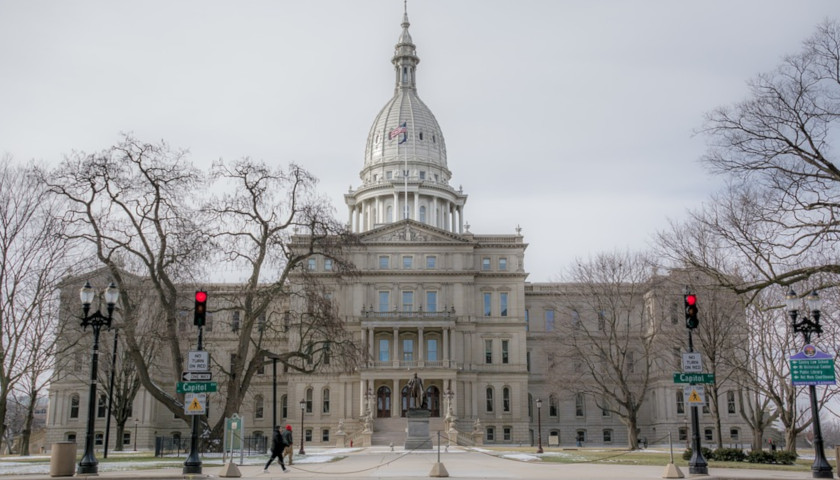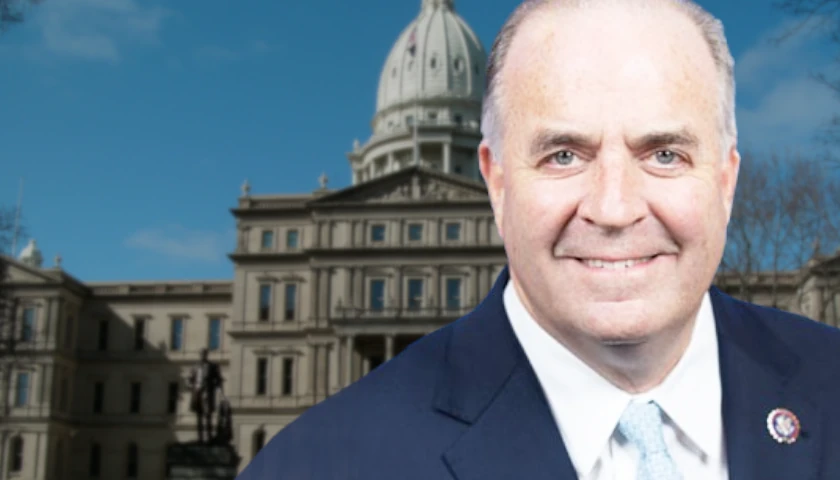by Scott McClallen
After a session exceeding 12 hours, Michigan lawmakers passed bills replacing a framework for Gov. Gretchen Whitmer’s COVID-19 executive orders deemed unconstitutional by the Michigan Supreme Court.
Lawmakers approved measures aiming to allow local governments to meet electronically for any reason through Jan. 1; extend unemployment benefits to a full 26 weeks; change nursing home policy barring nursing homes from caring for COVID-19 patients unless the building provides a “designated area” for those patients; and, by Nov. 15, implement a statewide policy allowing in-person visitations for all nursing home residents.
Another set of bills aim to protect businesses and schools from COVID-19 lawsuits if the establishment follows state, federal and local safety guidelines.
The Senate initially tie-barred the liability bills to the extended unemployment benefits, but removed it after the GOP-led legislature found “common ground” with Whitmer, House Speaker Lee Chatfield, R-Levering, tweeted at about 12:30 a.m.
“We have a deal on unemployment benefits and liability reform! The tie bar is no longer necessary, because we found common ground. Thank you @GovWhitmer and @SenMikeShirkey for your work and bipartisan cooperation. Great news for working families and small businesses!”
The House also passed HB 5756-57 seeking to extend the validity of vehicle registrations, driver’s licenses, and state identification cards and waive late fees on documents that expired after March 2020 if it is renewed before Dec. 11.
SB 748 aims to form a plan to reopen state unemployment offices and Secretary of State branches to ensure more in-person services are available to serve walk-in clients.
“The Secretary of State continues to be overwhelmed by requests and remains unable to process transactions in a timely manner,” Rep. Triston Cole, R- Mancelona, said in a statement.
“People who have not been able to renew their driver’s licenses and vehicle registrations are not at fault, and they don’t deserve to be punished or fined for their expired documents. We want to give them some peace of mind while they wait for branches to reopen.”
The House passed a resolution arming the Joint Select Committee on the COVID-19 Pandemic with subpoena power, which will likely be used to gain information from individuals who have refused to testify in front of the committee.
The House passed several bills allowing electronic signatures for some wills and forms and for notaries to work through real-time video.
The Senate also passed HB 4991, dubbed the end of “surprise medical billing” legislation.
Dominick Pallone, executive director of the Michigan Association of Health Plans, applauded the passage.
“These laws will protect Michigan residents from receiving surprise medical bills from providers who choose not to work with insurers to hold medical costs down, while assuring providers they will receive payment that is based on local market rates,” Pallone said in a statement.
“Michigan’s surprise medical billing laws will be one of the most comprehensive packages passed to date, giving Michigan families assurance that their health insurance will cover agreed upon treatment and they will not be ‘surprised’ by high charges for common procedures.”
The marathon session concluded more than a week after the Michigan Supreme Court struck down Whitmer’s executive orders issued after April 30, leaving local governments scrambling to cancel remote meetings that violated the law.
The top court instead recommended the two groups work together to enact a framework to protect Michiganders.
Whitmer’s administration issued emergency orders under a separate law, issuing mask orders and restaurant capacity limitations, but needed the legislature’s help for more complicated problems such as extending unemployment benefits and nursing home policy.
– – –
Scott McClallen is a staff writer covering Michigan and Minnesota for The Center Square. A graduate of Hillsdale College, his work has appeared on Forbes.com and FEE.org. Previously, he worked as a financial analyst at Pepsi.





